 On the eve of Saint John’s feast day, many Spaniards have fiestas, celebrating this saint with firecrackers, fireworks, a special type of cake (Coca de Sant Joan), and more. Even though many Spaniards have stopped practicing their religion, this tradition has been held sacred throughout the country. It is pretty common for families in every city to gather together in the town squares and eat, walk around and talk to friends, and light off fireworks. However, each city has its own unique way to celebrate this day. In Reus, Catalonia (the city in which I have been staying), the city sponsors a five day festival. This year, Saint John’s feast day was on a Friday, so the festival started on Wednesday night and finished on Sunday. At night, starting at around midnight, bands and DJs are stationed at four different stages and play until the morning. Stands selling food and drinks separate the music stages. And people walk from stage to stage, listening to the music and choosing which friends they want to stay and dance with. This week, I celebrated the eve of Saint John’s feast day with my host family and their friends at their restaurant in the city of Salou. The restaurant is located right next to the beach, with a patio facing the Mediterranean sea with a view of part of Salou’s curved coast. When it began to get dark, people started to light off fireworks. At around 10:30, we ate dinner on the patio with the view of the enchanting ocean and the fireworks. After dinner, the children of the family walked out onto the sidewalk to light fireworks, and we all watched as they added their fireworks to those of the rest of Salou’s. On Saturday, I celebrated the feast of Saint John again, but this time I celebrated it with friends in the city of Reus. At around 10 at night, we walked around outside at one of the plazas downtown and sat down at a bar. Later, we ate dinner at one of the friend’s apartment flats near town. At 12:30, we left the apartment for the festival. At this time, I was already tired because I am accustomed to going to bed at a decently early time. But it was definitely not too late for others. I was far from the youngest person there. There were people of all ages at the festival, including kids in middle school up until adults in their fifties or sixties. I was surprised that there would be that many young people at a festival, but, being that Reus is pretty small, the atmosphere at this one was familiar – people were constantly shouting across the field, greeting old classmates and friends. Once I started listening to the bands with so many of the other young people of the town, the energy at the festival refueled me and I was able to stay awake dancing with new friends until early morning. At the festival, two acts stood out to me. The first was a drums group made up of people with all different ages that played a couple songs unique to Reus and Catalonia. This group was really fun to watch because all of the people in it seemed really passionate about their songs and city, and also really seemed to enjoy playing for everybody. But they were also really fun to hear – the drums were really energizing and upbeat. The performers danced to their own music, and fed energy to a crowd equally excited to hear their music. The second act which stood out to me was a band which mixed traditional Spanish dance music with more modern sounds and beats. In many of their songs, they started off with a Spanish dance beat, and then blended in a dubstep/trap electronic beat. They successfully integrated the traditional music with the new electronic music, without taking away the value of either. So far in Spain, I have learned many things about cultures, people, myself, and life in general. One of the things which has helped me learn this much so far is experience. Through experience, I have met really neat people who have been open to share their lives and traditions with me. Even though I have made some mistakes in Spain (waiting for the bus in a more dangerous part of my town, initially not understanding the Spanish way of greeting people, or directly translating specific words from Spanish to English), it has been through these mistakes that I have been able to learn.
0 Comments
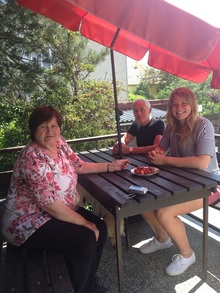 While travelling in Spain and the Czech Republic this summer, I have noticed language’s important role in everyday situations. As an agent for communication, language helps shape other’s opinions of us. When I have talked to people in these countries, language almost immediately indicates that I am a foreigner because of my strong accent. Usually I get asked many questions after people find out I am an American, especially one from California. But, once I get passed that point, and perseveringly persuade people from these countries to speak their language with me, they start to focus much more on my words than on my background. Thus, it becomes increasingly important that I represent my arguments in a grammatically correct way, otherwise my representation of my argument will reflect onto the argument itself. For instance, when I seem to struggle to talk about something merely because I might not know the verb form structure, which tense to use, or the vocabulary, it is quite normal for the listener to subconsciously think that I may not understand or know what I want to say, and jump to the conclusion that I am not too intelligent. But people from other countries are not the only ones who do this. I do this all of the time. I focus on the way people say things, and the way people write, as a way to judge the validity of their arguments. If people present something in a grammatically incorrect way, it seems quite safe to assume that that person did not receive a great education and does not know how to use their language correctly. Then, that inference can be made onto their argument as well. If they had not been educated well enough to shape their sentences correctly, could their thoughts and logic processes be incomplete as well? Perhaps. In Saint Augustine’s Confessions, Augustine writes that the Truth does not lose its validity based off of its presentation. Even if it is presented poorly, in essence, it still is the same. But people can more easily ignore its importance if it is disguised as something unintelligent. Thus, those who really seek to know the Truth will look past the presentation because they believe that Truth transcends its presentation in human form. Thus, for messengers of Truth to educate those around them, it is important, and even necessary, to spend time in its presentation so as to convince the listener, or reader, that what they are saying has importance and implications. When I have struggled with presenting my political ideas and arguments in different countries, it has been easier for my companions to dismiss my reasoning because it didn’t sound smart or convincing. To them, I sounded like a child, thus they associated my ideas as those that a child would have. Winning these arguments has been difficult, and gaining enough courage to start one even more. Thus, it has become my responsibility, as a person seeking for Truth, to try to be an intelligent representative so as to be heard and received well.
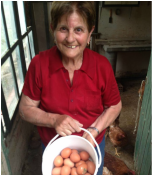 Meet Yaya, my new “adopted” grandmother. Yaya and I have shared many afternoons together, cooking, taking care of the hens, and talking. I have learned much about her incredible life, and have felt inspired to share her story. Yaya grew up during an extremely difficult time in Spain. She was born during the Spanish Civil war, and lived throughout the Franco's Nationalistic dictatorship. In her early childhood, when Yaya was just six years old, her mother passed away from an illness. Then, when Yaya was eight, her father was killed because he opposed Franco. With both parents dead, Yaya had to rely on her two older siblings for food and protection. While her older two siblings went to work during the day, Yaya stayed home with her dog and worked in their garden. Every morning, Yaya would help make breakfast for her siblings. And every night, Yaya would have a meal prepared from the vegetables in the garden. From not much food, she was able to sustain her older siblings and herself. When Yaya was 11, she studied at a school nearby for one year. However, realizing that her work was needed in the house, she decided to sacrifice her schooling for her family. Her older sister, instead, taught Yaya. From a very young age, Yaya realized that her self-sacrifice was a gift of Love that she was able to perform no matter what. When Yaya was in her early twenties, she married another young man from her village. They had grown up together as friends, and both knew what sacrifice and Love meant. Both understood that these were needed for the success of a family. A few years after getting married, with two children and pregnant with the third, the couple moved to Barcelona to look for better jobs. Yaya and her husband wanted their children to have better lives, and better educations, and knew that it would be easier to find better sustaining jobs in the city. While in Barcelona, Yaya worked for three households. At six every morning, Yaya would wake up, make breakfast, and help the two oldest children get ready for school. At seven, she would take her youngest with her out to the first house to clean and cook breakfast. After spending a couple of hours at the first house, she would move on to the next house, cleaning and cooking meals for the rest of the day. When I questioned her about the families she worked for, she said that they were very kind. She would often sit with them to eat meals, and she did not feel disrespected at all. These families greatly appreciated her hard work, and honored her as a part of their households. Once the children grew up and became independent, Yaya maintained an active lifestyle full of hard work. She and her husband moved to Reus, where she started raising hens and gardening. She kept up the same work hours as before, waking up at six and starting work bright and early. Whenever her children needed her help with anything, she was ready and willing to show her love and sacrifice her time for them. A year ago, she lost her husband to cancer. Leading up to his death, she took great care of him, sacrificing many of her hours to help him. Once he passed away, it became very hard for her to live alone. However, Yaya decided to spend her time helping her children instead of feeling sorry for herself. Now, she still gets up at six every day, ready for her work. She has two properties where she raises hens, and she helps out with the cooking (lucky me) for one of her sons’ family. When I asked her why she still gets up so early, she said “To work! Clearly,” surprised that I would even ask her that. It has been this attitude which has helped her do so many things. Yaya’s persistent, self-sacrificing, and optimistic attitude has enabled her to work extremely hard and to never ever give up. She rejoices in the challenges of each day because she is strong. Despite her many years of work, she has never lost her sense of humor. A couple of days ago while we were drinking tea and eating a rice dessert (arroz con leche), she was so involved in her story that she plopped a spoonful of rice in her tea instead of on her plate! It was hilarious, and we both died from laughter. After we calmed down a little bit, she just stirred up her tea and drank it anyways. Nothing seems to slow her down. While recounting her childhood, she still has haunting memories. “It was really hard,” she told me, with tears in her eyes. At such a young age, Yaya had to grow up and do what not many of us could ever fathom doing. She lost both of her parents and had to take over many of their responsibilities for her older siblings. But, even through all of her hardships, Yaya has maintained a positive attitude. By first encounter, you would have never been able to guess her history, despite the fact that she saves and uses everything. A child at heart, she welcomes all around her with Love. Whenever I see here, she brightens up, smiles, and proceeds to tell me about her day. I have cherished her stories, and honor her as a model of hard work. |
Jessica De GreeJessica teaches 5th grade English and History as well as 11th grade Spanish III at a Great Hearts Academy in Glendale, AZ. In addition to teaching, she coaches JV girls basketball and is a writing tutor for The Classical Historian Online Academy. Jessica recently played basketball professionally in Tarragona, Spain, where she taught English ESL and tutored Classical Historian writing students. In 2018, she received her Bachelor's degree in English and Spanish from Hillsdale College, MI. Archives
April 2020
Categories
All
|
|
SUPPORT
|
RESOURCES
|
|

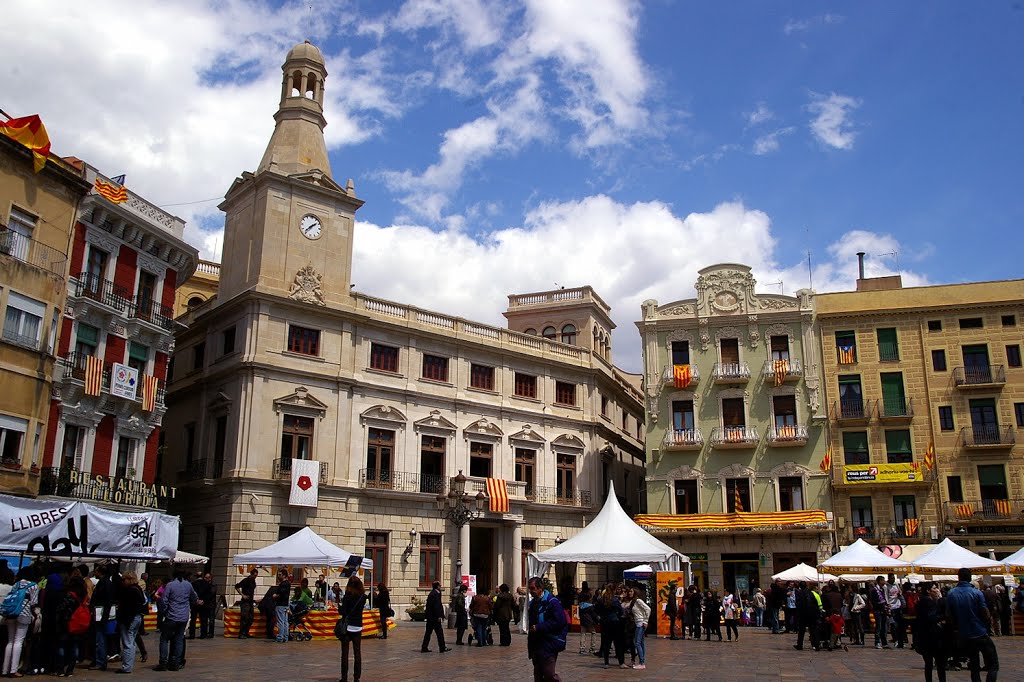
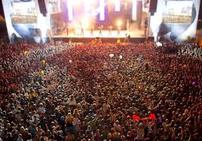
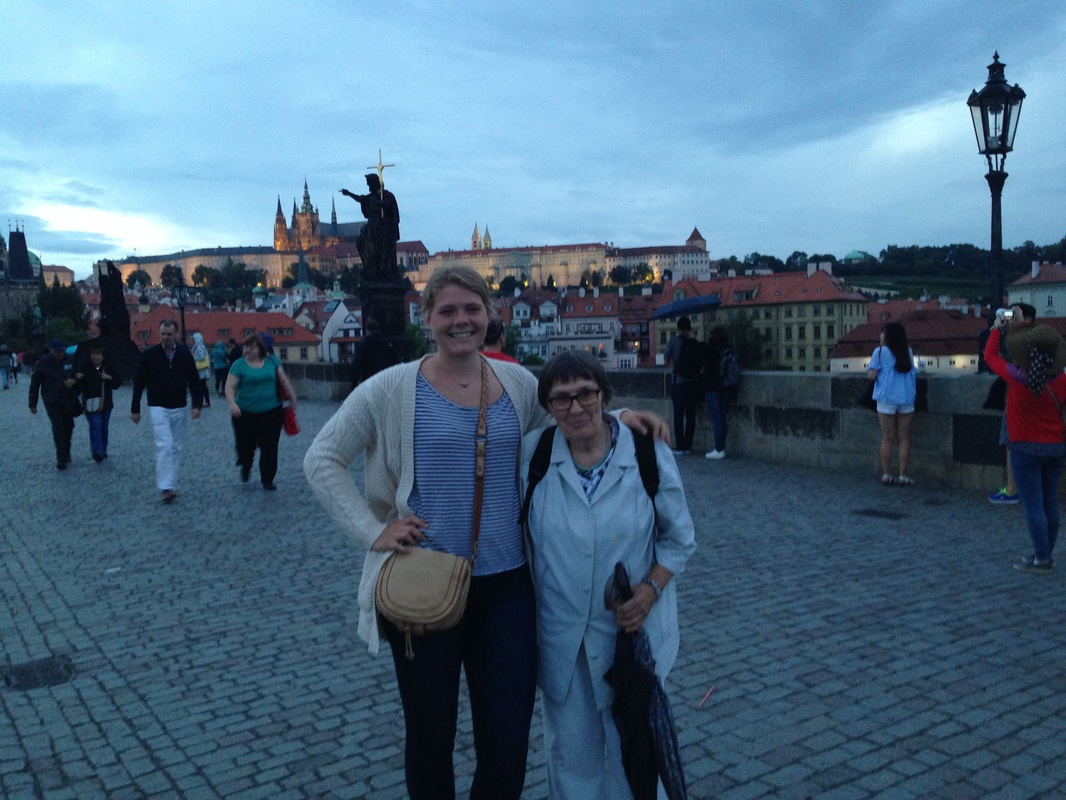
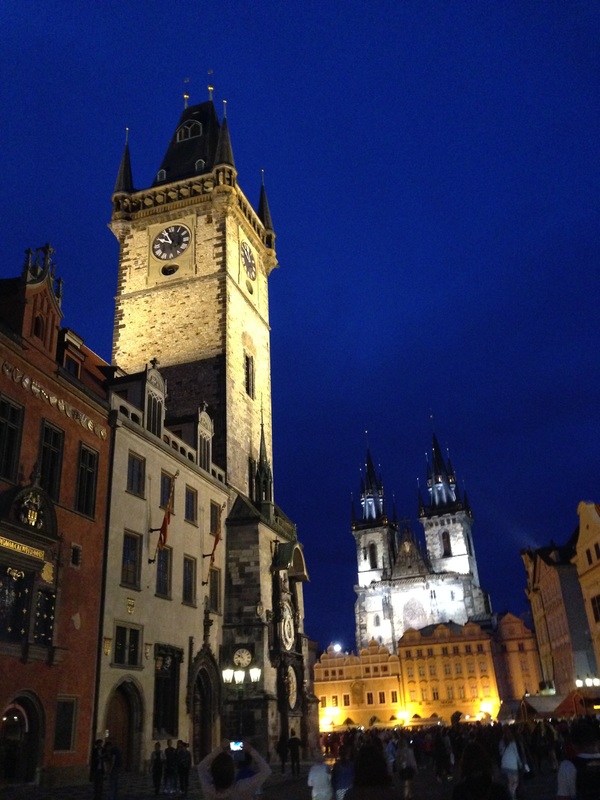
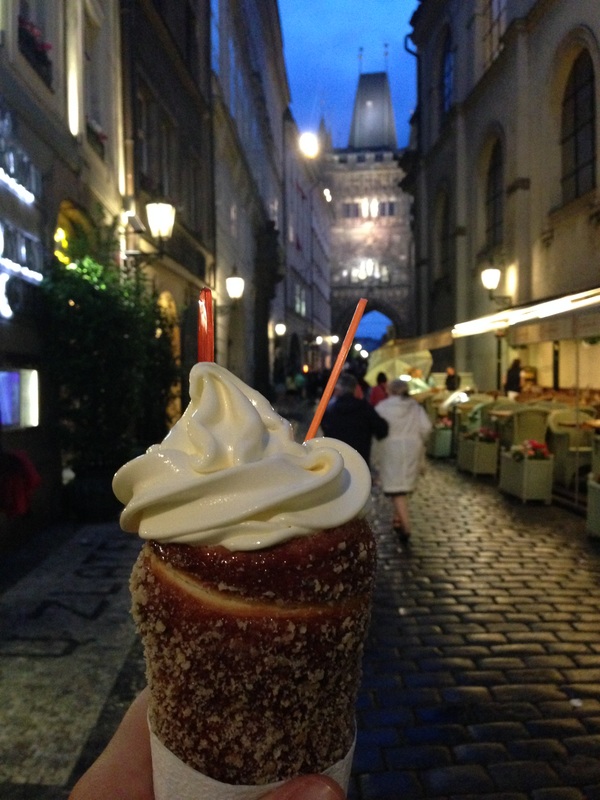

 RSS Feed
RSS Feed



